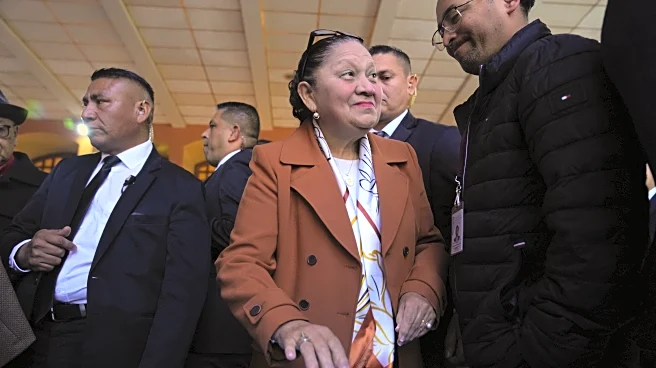Rapid Read • 8 min read
Vice Chair for Supervision Michelle Bowman of the Federal Reserve has expressed dissent regarding the Federal Open Market Committee's (FOMC) decision to maintain the current policy rate. Bowman argues for a gradual reduction in the federal funds rate, citing signs of fragility in labor market conditions and a slowdown in economic growth. She highlights that inflation is nearing the target rate, and the labor market remains close to full employment. Bowman emphasizes the importance of community banks in driving local economic growth and discusses regulatory reforms aimed at supporting these institutions. She also addresses the challenges posed by fraud in the financial system, particularly with the advent of artificial intelligence.
AD
Bowman's stance on reducing the policy rate reflects concerns about potential weakening in the labor market and economic activity. Her focus on community banks underscores their critical role in supporting local economies, which could be impacted by broader economic shifts. The discussion on fraud highlights the evolving risks in the financial sector, necessitating enhanced detection and prevention measures. These developments could influence future monetary policy decisions and regulatory frameworks, affecting various stakeholders, including banks, businesses, and consumers.
The Federal Reserve will continue to monitor economic data and conditions, with upcoming employment and inflation reports potentially influencing future policy decisions. Bowman advocates for a proactive approach to adjust the policy rate towards a neutral level, aiming to prevent further erosion in labor market conditions. The Federal Reserve plans to host a conference focused on community banking in October, bringing together industry experts to discuss challenges and regulatory priorities.
Bowman's emphasis on community banks and fraud prevention highlights broader issues in the financial system, including the need for regulatory reforms that address the unique challenges faced by smaller institutions. The integration of artificial intelligence in fraud detection presents both opportunities and challenges, requiring collaboration between regulators, banks, and tech developers to safeguard financial systems.
AD
More Stories You Might Enjoy












